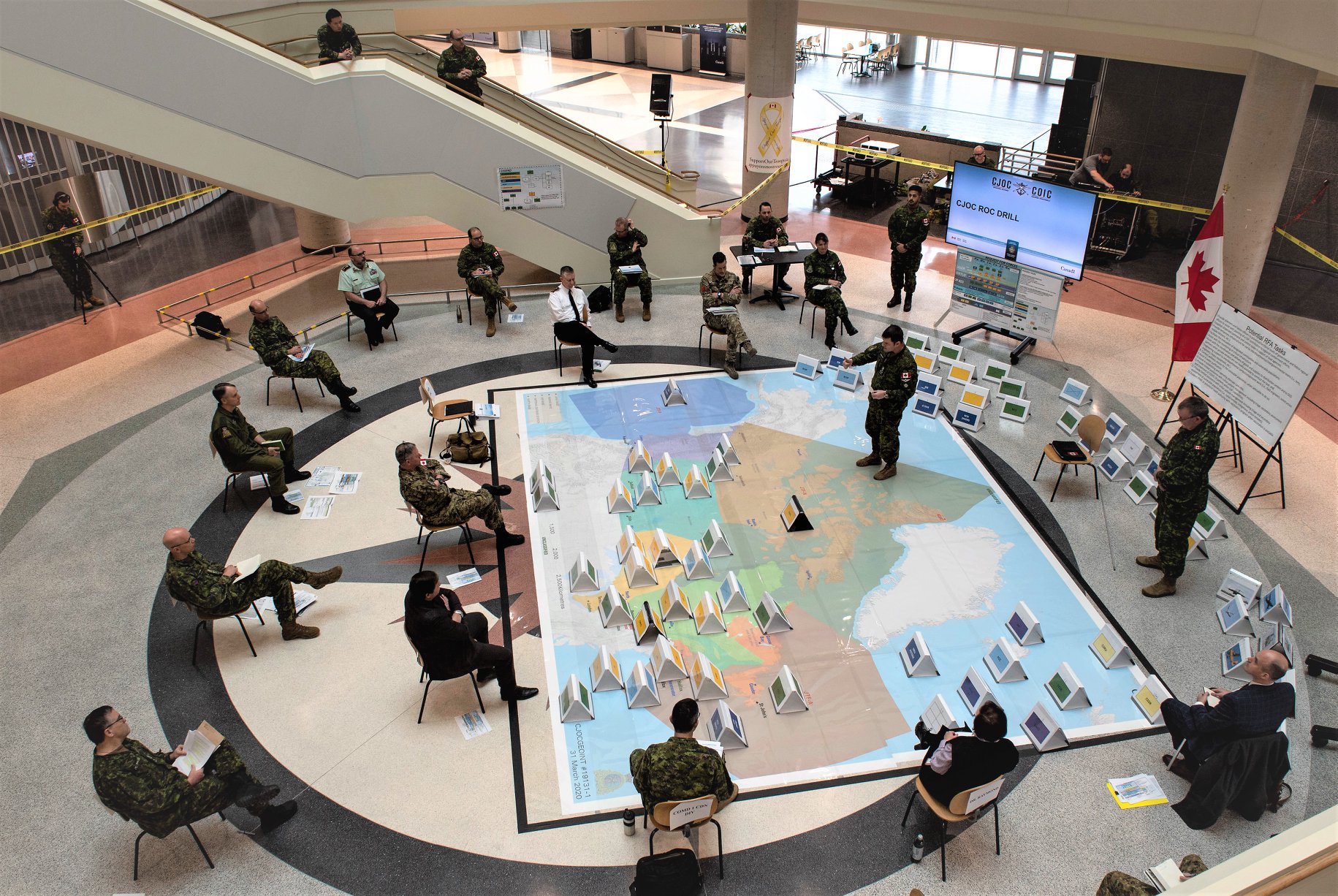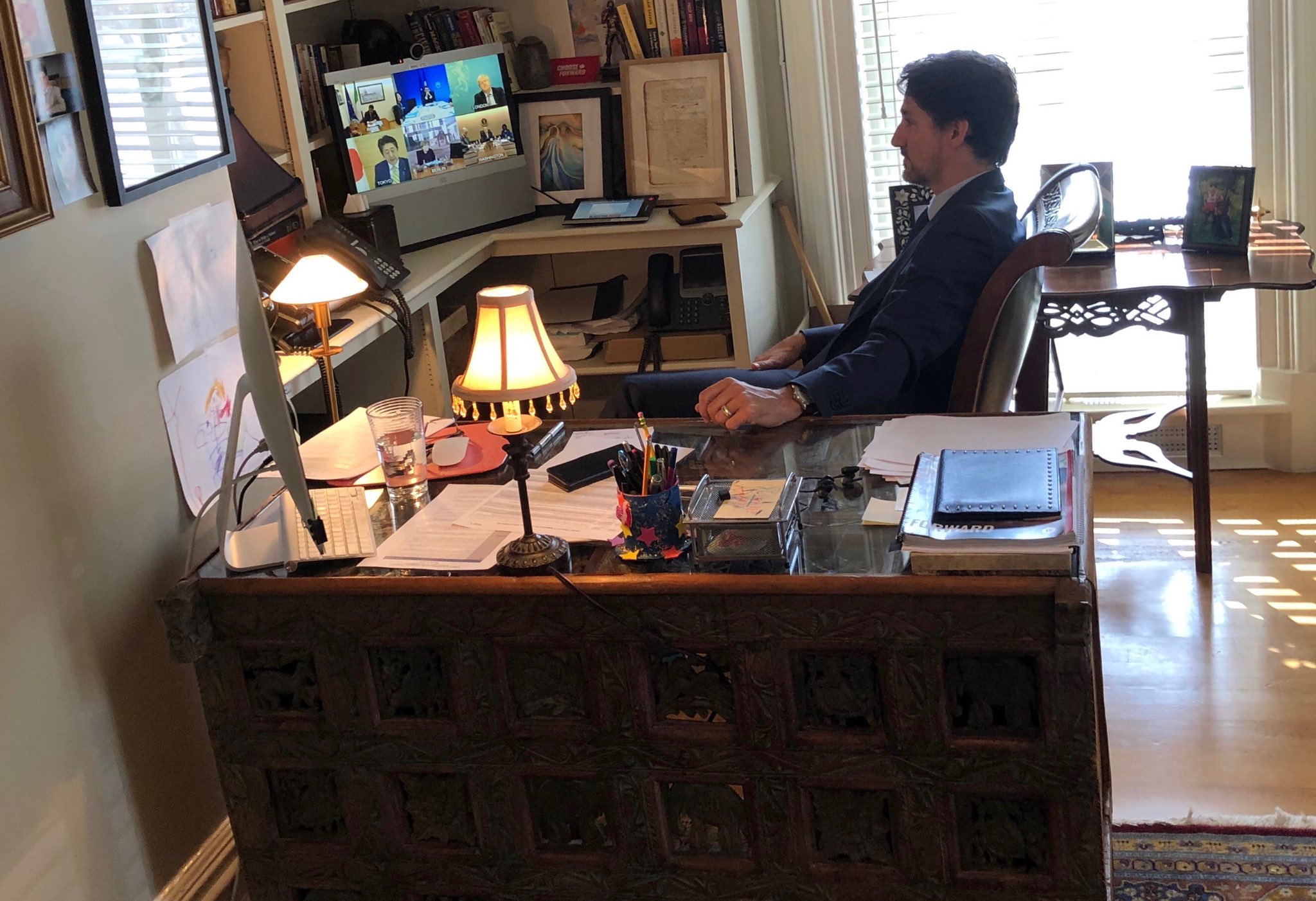But is it?
“I am a soldier in this battle, I am fighting my piece and I ask you to fight yours,” wrote Prateek Harne, a resident physician working at SUNY Upstate Medical University Hospital in Syracuse, New York—the front lines of the pandemic. “Breathe and keep fighting.”
Leaders have called on their nations to rally to the cause of defeating the virus, not by getting out to fight, but by staying home, en masse. Many of those still working are cut from the same cloth as the grunts who fight real wars: grocery store clerks, pizza cooks, delivery people—minimum-wagers, unsung heroes, all.
“Not since the Second World War has our country faced a challenge that depends so much on our collective solidarity,” German Chancellor Angela Merkel declared on March 19.

In war, the home front has historically transformed itself. Factories that produced trucks, automobiles, farm machinery and other peacetime products were suddenly building aircraft, tanks and armoured vehicles.
In England during the Second World War, piano factories even built wooden frames and fuselages for Mosquito aircraft. Rolls-Royce, Packard other auto companies were building what were destined to become legendary airplane engines.
Now, as U.S. Army field hospitals pop up in hotspots all over America, Ford, General Motors and other carmakers are producing breathing aids and other personal protective equipment. The underwear-maker Hanes is sewing surgical masks, while Stanfield’s is cranking out surgical gowns. Bauer, the hockey equipment manufacturer, is making face shields for medical professionals. Dyson, the vacuum cleaner company, is producing 15,000 ventilators.
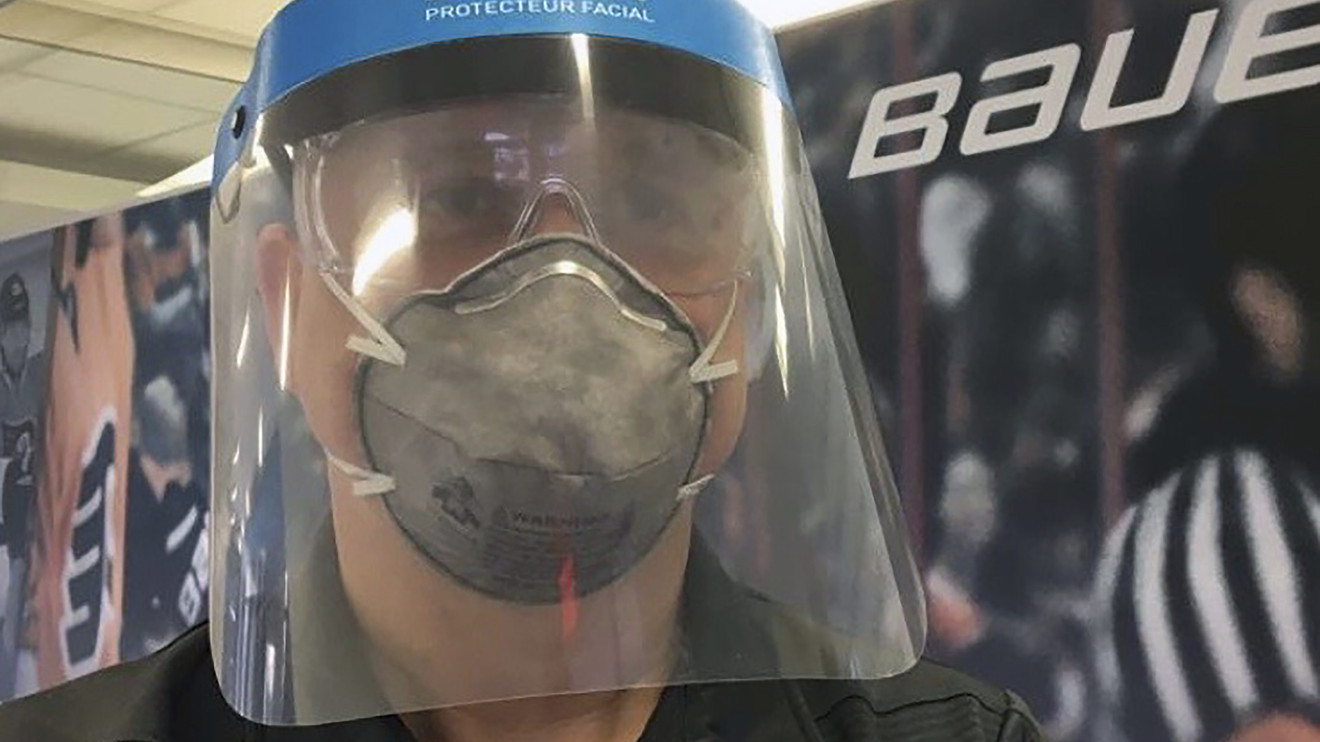
Quebec-based hockey equipment manufacturer Bauer has shifted from making visors for helmets to medical visors for those fighting the coronavirus pandemic. [BAUER HOCKEY CORP]
His strategy—widespread testing and tactical decisions on shutdowns, movements and quarantines—fell short of more drastic measures such as a nationwide lockdown. But it apparently worked: spread of the virus dropped precipitously by mid-month.
“It is sometimes said that wars are won not by tactics or even strategy, but by logistics and communications,” said Spain’s Josep Borrell, the European Union’s High Representative for Foreign Affairs and Security Policy. “This seems true for COVID-19 as well: whoever is best at organizing the response, quickly drawing on lessons learned from around the world and communicating successfully toward citizens and the wider world, will come out strongest.”
As cases in Canada escalated and the death toll rose, Prime Minister Justin Trudeau was asked if he would invoke the federal Emergencies Act, formerly known as the War Measures Act. That would give the federal government “extraordinary powers” to ensure the safety and security of Canadians in a crisis.Trudeau’s reply: Not now.
The act would empower Ottawa to restrict or prohibit travel, evacuate areas, remove or requisition property, order essential services, regulate the distribution of essential goods and services, make emergency payments and compensation, and impose fines and jail terms to anyone who contravenes the orders.
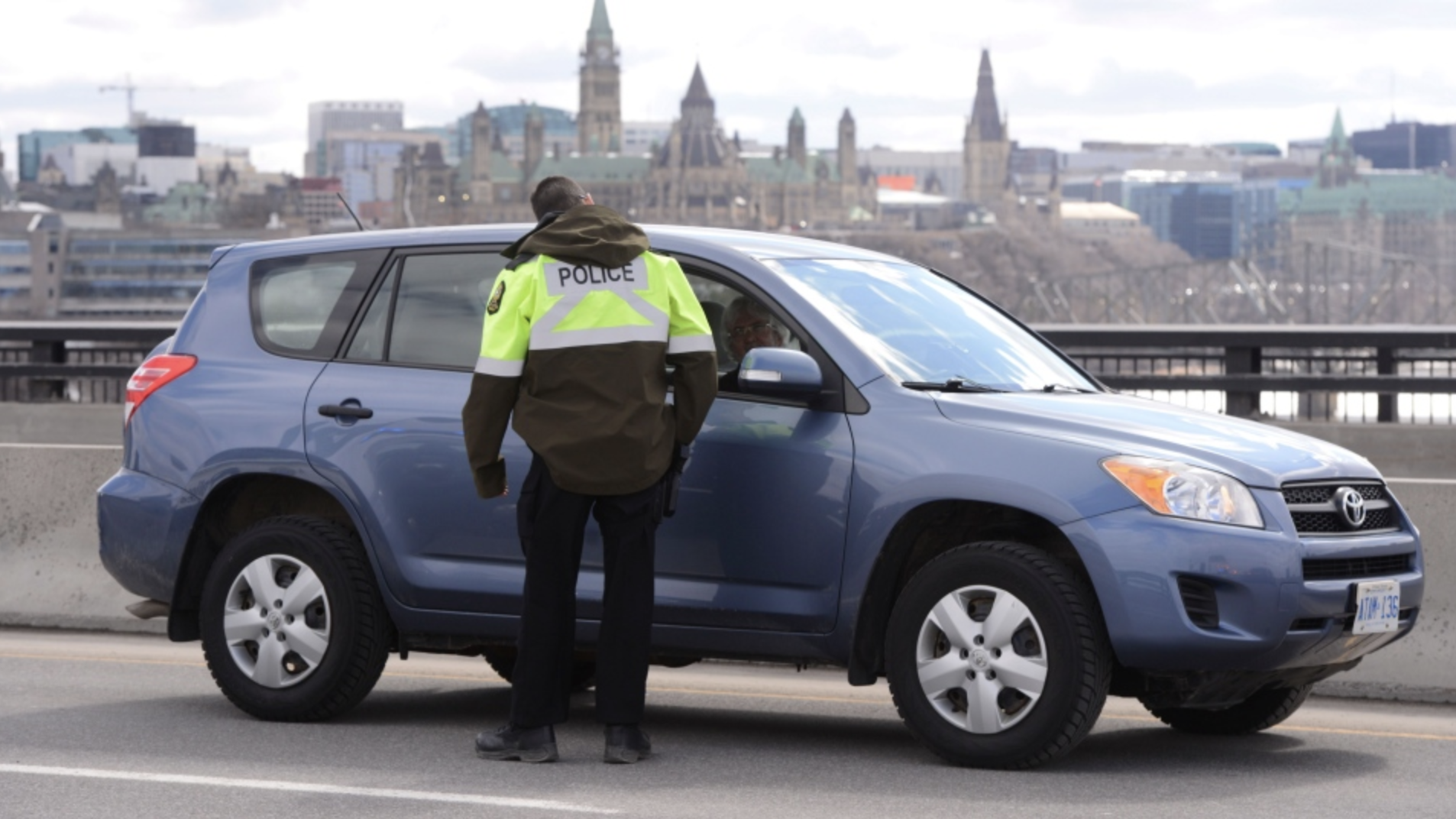
Quebec police officers randomly stop traffic entering Quebec from Ottawa on Wednesday, April 1, 2020, during the COVID-19 pandemic. [Sean Kilpatrick/THE CANADIAN PRESS]
Canada, with its expansive landscape and widely distributed population, has so far opted for self-quarantine, travel bans, some airport closures, border closures, and shutdowns of offices and non-essential businesses, most of them provincially or even municipally imposed, and many threatening fines and jail time if contravened.
“The idea of serving one’s country changes from one generation to the next,” the prime minister said on April 2. “Your grandfather may have served this country by going abroad and fighting a war. Your mother may have fought for more equality. But now, it’s your turn. … You can serve your country by staying home and following the rules.”
In late March, Trudeau announced billions in emergency aid for small businesses, self-employed and the unemployed. Critics have complained there is not enough oversight in how the money will be distributed and accused Trudeau of attempting to consolidate his power. Others, including the New York Times, have held the prime minister’s regular briefings up as an ideal of calm and simple messaging in extraordinary times.
The chief of the defence staff General Jonathan Vance, has said the Canadian military is at the government’s call, ready to step in how and where needed. “Stay fit to fight,” he has told the troops, up to 24,000 of whom have been activated to be ready to tackle domestic needs. Reservists have been offered full-time work with the CAF.
Ten army “immediate reaction units” are available to respond to local requests for assistance such as humanitarian support, wellness checks and natural disaster response. The navy is prepared to assist coastal communities, and 50 patrols of the Canadian Rangers, Canada’s largely indigenous reserve force, have been escalated to full-time readiness in the Arctic and northern regions.
South of the border, a crisis often increases the popularity of American presidents, especially in times of war where the cause is clear, the nation’s security is at stake and patriotism is high.
Facing a fall election, a pandemic of near-biblical proportions, and a collapsing economy, U.S. President Donald Trump has described himself as a wartime president. He ordered U.S. military hospital ships into the ports of two of the nation’s most-impacted cities, New York and Los Angeles.

There was a run on firearms and ammunition across the United States early in the crisis. Trump even said he was considering dispatching American troops along the border with Canada, celebrated as the longest undefended border in the world. The border itself has been closed to non-essential traffic.
Yet the American president, whose political base widely opposes government interference, has resisted invoking other wartime measures to address what is essentially a peacetime crisis.
Trump has said blanket application of the U.S. Defense Production Act is not needed to compel firms to manufacture the medical equipment hospital staffs have been crying for. Those that have stepped up to the plate have done so largely of their own accord—the virtual halt in commerce enough to compel them to do so.
The COVID-19 crisis “could ultimately have an impact as serious as a world war in terms of the number of people affected, in terms of the impact on the economy and on people’s way of life,” said Nicholas Burns, former U.S. ambassador to the North Atlantic Treaty Organization.
Indeed, the economic and political implications of the pandemic are already evident, globally and domestically.
Some have even said the pandemic threatens democracy—causing the postponement and possible cancellation of primary elections in several U.S. states and raising the possibility that next November’s presidential vote could be delayed.
The crisis has been used elsewhere as an excuse to tighten grips on power. In Hungary, nationalist prime minister Viktor Orban was granted the authority to rule by decree until his government decides COVID-19 has been contained. The move effectively eliminates democratic opposition. Critics assailed it as an authoritarian power grab.
In China, Thailand, Cambodia, Venezuela, Bangladesh and Turkey, to name a few, governments are detaining journalists, opposition activists, health-care workers and anyone else who dares criticize official responses to the coronavirus.
Caroline Orr, a columnist for Canada’s National Observer, wrote recently that the virus is less concerning than the war on truth it has created.
At a time when access to accurate information can be a matter of life or death, draconian restrictions on speech—even those that target falsehoods and conspiracy theories—threaten to scare people into silence and disrupt the flow of crucial health information, said David Kaye, United Nations special rapporteur on the promotion and protection of the right to freedom of opinion and expression.
“Public health can be a basis for restricting information under human-rights law, but these kinds of broad restrictions are basically unwarranted and ultimately dangerous to public health,” Kaye told Orr.
Borrell, who co-ordinates EU foreign and security policy, wrote in the Sarajevo Times that the health crisis itself is “not a war but it is ‘war-like’ in that it requires the mobilization and direction of resources at unprecedented levels.”
“Solidarity between countries and a readiness to make sacrifices for the common good are decisive,” he said. “Only by pulling together and co-operating across borders can we beat the virus and contain its consequences.”
Borrell barely mentioned the United States in his op-ed, saying “a global pandemic needs global solutions and the EU has to be at the centre of the fight.”

For better or worse, the word ‘war’ is the great motivator of people. The term has been used politically for just that purpose for generations.
Richard Nixon declared a war on drugs, which audiotapes and documents later showed was really about something else entirely—putting African-Americans in prison. There are also wars on poverty, disease, inflation, unemployment and terrorism.
“In states of threat and high alert, we want to find ‘the enemy’ and vanquish that enemy,” Polly Young-Eisendrath, clinical associate professor of psychiatry and psychology at the University of Vermont in Burlington, wrote in Psychology Today. “That is one of the reasons why humans have almost always been at war since we have been on earth.”
Rather than waging war on the COVID-19 virus, however, Young-Eisendrath says we need to understand it.
“We don’t yet know fully the nature of this virus or exactly how it will behave,” she wrote. “We still don’t have enough reliable data about what the virus is, to know what kind of threat it poses.
“In the absence of understanding the virus, we have made it into an enemy.”
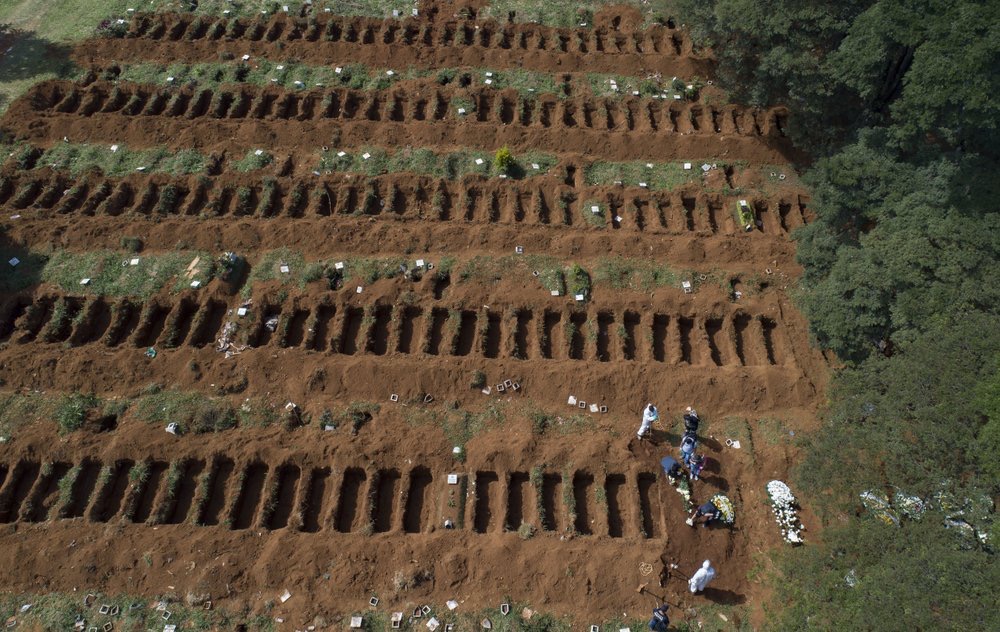
Cemetery workers in protective clothing bury a COVID-19 victim in Sao Paulo, Brazil, on April 1, 2020. [AP Photo/Andre Penner]
“Let’s not ‘make war’ on the virus,” she said. “It’s an impossible and destructive intention. Instead, let’s learn about the virus and its needs in relation to us.”
“We don’t rule this planet. We have to get along here. And our human world is a world of life-and-death, not a world of ‘life’ separated from ‘death.’ The two are bound together for humans on earth. We cannot wage war on one side without making war on the other.”
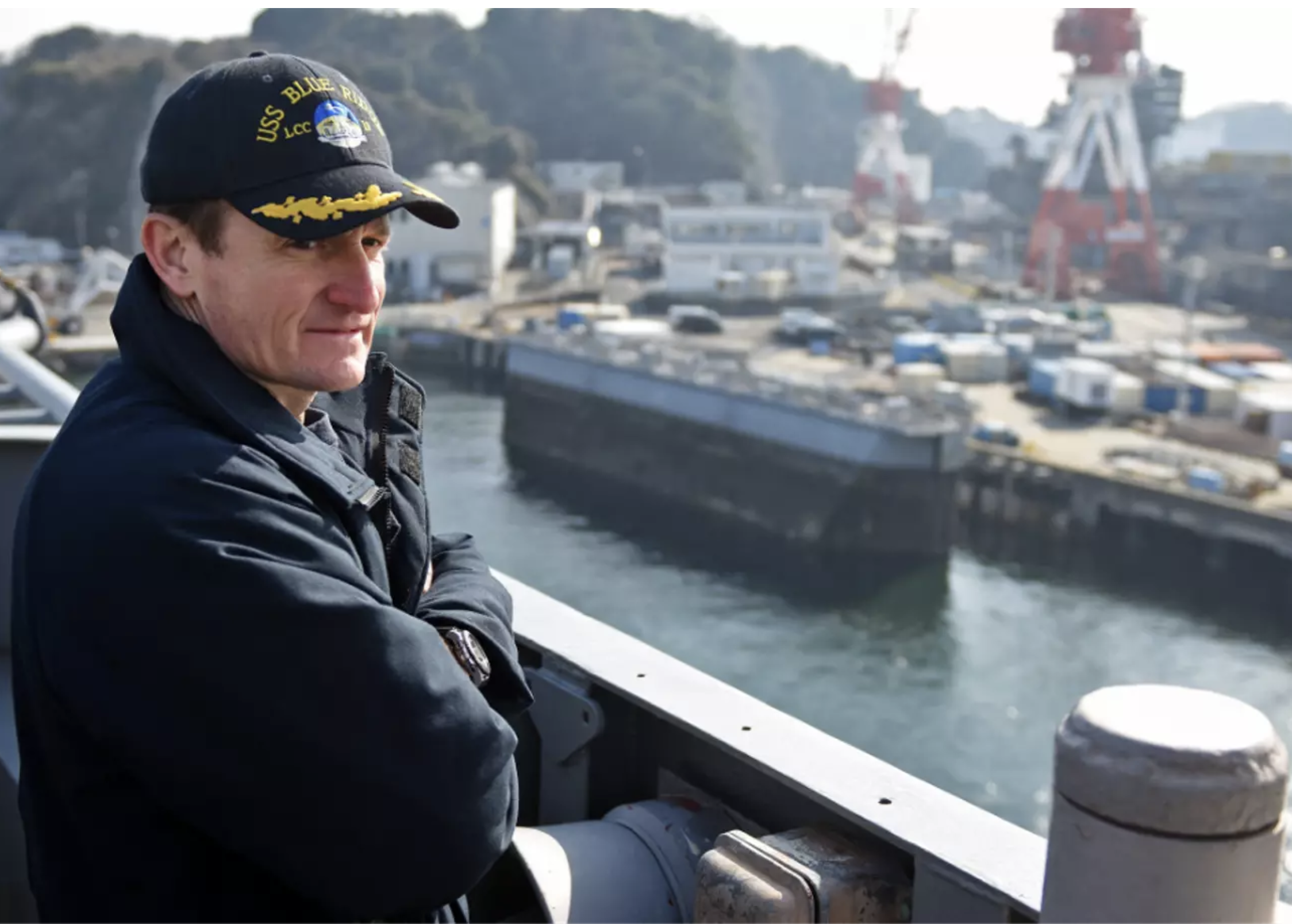
U.S. Navy Captain Brett Crozier was relieved of his command of aircraft carrier Theodore Roosevelt after writing a letter to his superiors pleading the case for his crew, which had found itself in the grip of the COVID-19 pandemic. [Associated Press]
“We are not at war. Sailors do not need to die,” insisted Captain Brett Crozier. “If we do not act now, we are failing to properly take care of our most trusted asset, our sailors.”
More than 150 of his crew were diagnosed with the illness, including Crozier, who was relieved of his command after his letter went public. The acting secretary of the navy, Thomas B. Modly, said the skipper’s actions undermined confidence in his ability to command.
Advertisement









